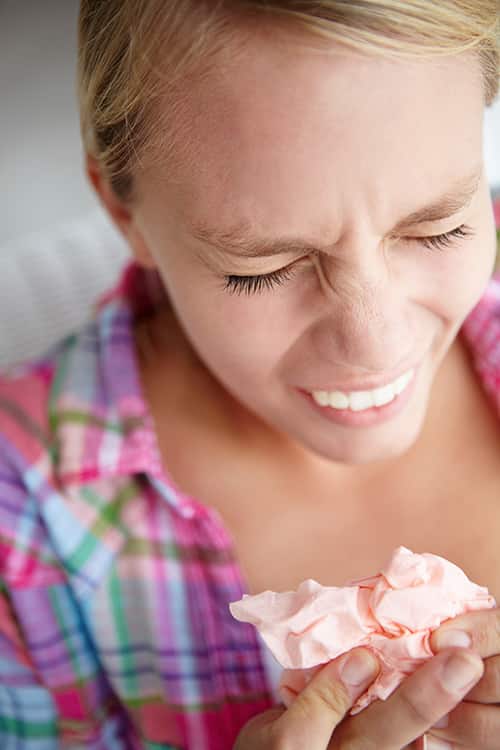Itchy throat, watery eyes, and sneezing, it’s that time of year again folks!
The leaves will be turning colors, pumpkin recipes will be floating all over social media and the weather will be changing. Along with these weather changes, brings the infamous allergies that fall entails. Between 10% to 30% of people tend to suffer from allergies after summer ends. If you suffer from summer allergies, you are 75% likely to suffer from fall allergies as well. Many people are unsure if they suffer from allergies or if their symptoms are something else. Your Anderson Eye Doctor, Dr. Amy Walden & Associates has some great tips for identifying allergens and how to treat them.
Symptoms of Fall Allergies:
 Runny nose
Runny nose- Nasal congestion
- Sneezing
- Itchy eyes
- Watery eyes
- Coughing
- Itchy nose, the roof of mouth, or throat
- Sinus pressure
- Swollen eyes
- Decreased sense of smell or taste
If you have any of the above symptoms or a combination of these, you could be experiencing allergies. If symptoms persist for longer than a few days, you should consult with your physician. Swollen and dry eyes are common symptoms, but if you find they are impairing your vision, contact your Anderson Eye Doctor right away.
What are some common allergy triggers?
Weeds
- Ragweed
- Cockleweed
- Pigweed
- Russian Thistle
- Sagebrush
- Tumbleweed
Grasses
- Bermuda
- Blue Grasses
- Orchard
- Red Top
- Sweet Vernal
- Timothy
How To Control Your Seasonal Allergies From Your Anderson Eye Doctor:
- Know Your Triggers
Try to locate your trigger as quickly as you can. Pay attention to how you feel outdoors, times of day, and pollen levels in the area. - Shower
If you spend a lot of time outdoors, it is best to change your clothes and wash your hair, hands and feet after you arrive back in your house. Try to take off or change your shoes before you enter your home as well. If you do not, you can track in anything that touches your shoes and they will be exposed in your home.
- Do not hang clothes outdoors
If you usually air-dry certain pieces of clothing, it is best to keep these indoors. Pollen is a magnet to laundry and you will end up bringing this indoors.
- Check pollen levels
If you plan to spend time outdoors, always check the pollen level if this is a trigger. If possible, when it is at a high count, try to plan more indoor activities. - Clean your filters
Change your air conditioner and furnace filters per the amount that is required for your unit. Ragweed lasts after the temperatures drop, therefore clearing it out of your home will help with eliminating it from your home.
- Rake Your Leaves
Expose your leaves quickly, so they do not get wet and moldy. If you are allergic to them, have someone else remove them.
- Eat a natural diet
Eat a diet that contains antioxidants and omega-3 essential fatty acids. This will detox your body and strengthen your immune system.
- Keep an antihistamine on hand
Consult with your doctor to find out what the best antihistamine will work best with your symptoms and health.
It is best to find your trigger and a remedy that works best for you individually. If you have any eye issues from your allergies, please feel free to contact Dr. Amy Walden & Associates, your Anderson Eye Doctor and we will be glad to assist.
